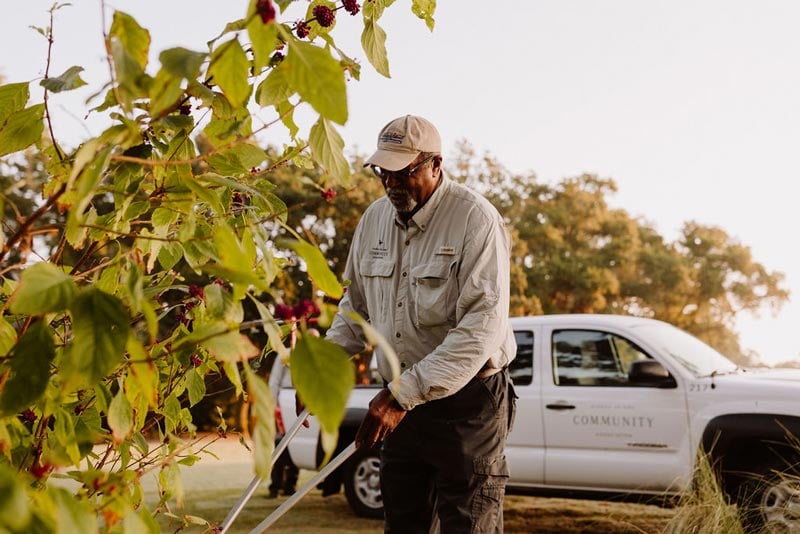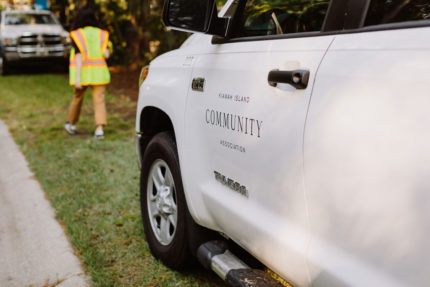Jun
13
2008
From The Blog
Future Visions: A Dialog With Chairman Paul Roberts
Dr. Paul Roberts recently succeeded Russ Warren as chairman of the association’s board of directors. At a time when transportation issues dominate discussions about Kiawah’s future, KICA is
fortunate to have a member with expertise in transportation engineering and economics at its helm. Digest recently talked with Paul about his background and how he views his term as chair.
Digest: In what ways do you anticipate that the new strategic plan will make your tenure as chair different from that of your recent predecessors?
Paul Roberts (PR): It’s easy for a board to get bogged down in day-to-day issues. This year, we can think more broadly and focus on strategic decisions that are important to the future, rather than spending time on housekeeping decisions or responding to minor crises. Last year when a paving job on Governor’s Drive had problems, association COO Joe Bunting handled the issue, and the board did not have to be involved. Every board member has good ideas and we will try to concentrate on the strategic issues.
Digest: What do you see as the single most important objective for
the board this year?
PR: To begin working on the strategic plan actions for 2009. It would be easy to say okay, we’ve already done it, and put it on a shelf. But, the strategic plan is actually an on-going process, and
we have to continue to move it forward. Armand Glassman, our first vice-chair, is in charge of orchestrating the details of next year’s plan and envisioning the new fifth year.
As for specific actions, the issue of Johns Island roads has risen to the top of the agenda as a consequence of the flurry of activity on the part of the Charleston County Council. Fortunately, I have quite a bit of experience in traffic engineering, and I cringe at the bad plans in some cities. The town has taken full responsibility for this issue. Al Burnaford has been to all the Charleston County Council meetings and has kept on top of what is happening. Now with the increased activity, we are lending KICA’s full weight to the town’s on-going effort, as well as trying to forge consensus among the four key groups on Kiawah: the association, the town, the resort and the developer. This is a critical time, because if we are going to impact events in the near future, such as the 2012 PGA golf tournament, we have to move quickly.
We need to broaden our perspective and look outside our gate. We think we live in the most wonderful place in the world and want to keep it that way. But look at Hilton Head, another model community. Their access roads have become completely congested, a mess to drive. The Johns Island community wants its roads to remain rural and beautiful, but that may not be possible given
the amount of recent and anticipated development. We need a proactive view of where Kiawah and Seabrook are now and what we want in the long term. If we want to preserve what we have,
we must be part of the planning. If we don’t do anything, we’ll have another Route 17 or Folly Road, which is not an attractive prospect.
Digest: What are other pressing issues for the board this year?
PR: Land acquisition is critical to ensuring the future of Kiawah for many reasons including amenities, conservation, activities of the community association and maintenance facilities. What we can do will depend on the cost and location of available land. We need to examine various alternatives and the mechanisms to pay for them before we can decide how to proceed. It’s like going to
Costco to buy a high definition TV set. You look at the features you want and the price your bank account will support, and you look for the best match, probably compromising in some way.
One of the issues that emerged last year was the need for a commercial pass facility. We have several initiatives now to find such a piece of property, but it’s not easy. We need to keep focused and not let the momentum slip away.
Digest: Is there anything not in the strategic plan that you would like to see the board take up?
PR: The plan is too recently finished for that, but I expect something will suddenly crop up and we’ll wonder why we didn’t think of it. For now, what we already have in the plan will consume our best efforts.
Digest: What first brought you to Kiawah, and what made you decide to retire here?
PR: My brother-in-law and his family had vacationed on Kiawah for years. He invited us to a big family reunion here, around 1998, and we loved it. My wife and I knew immediately that this was where we wanted to retire. We came back again to be sure, and then faced the question of whether we could afford it. My brother-in-law was also moving here, and we thought it would be nice to live near family. We have been here full-time since 2000, renting at first while we built our house.
Kiawah is such a great place to enjoy nature. I’ve always liked the outdoors. As a boy scout, I went to senior scout camp in New Mexico. I loved identifying plants and birds. I’m a real bird freak,
and I’ve recently managed to get a good camera lens that will allow me to take bird pictures. When we lived in the Washington, D.C. area before moving to Kiawah, we were near the woods, and I would walk every morning, bird-watching in all kinds of weather. Here, I like to walk the beach scouting for birds. In mid-April we saw our first painted bunting and a week later, for only the second time since we moved here, we saw an indigo bunting. In February, the conservancy prevailed on me to give a presentation of bird photos, and I think people enjoyed that. I have received a number of calls since then from members about their personal bird issues.
Digest: What else do you like to do when you’re not conducting KICA business?
PR: It’s true that I am spending a great deal of time on KICA right now, but we like to get out and about. My wife and I go downtown often, and we enjoy the symphony, theater, the concert association and Spoleto, of course. As a nature lover, I became involved with the conservancy right away when we moved here. I am also on the turtle patrol–both nesting and hatching.
Digest: You seem to have worn many hats in recent years. From an educational background in civil engineering, how do you move post-career to successive volunteer positions as chair of the conservancy, KICA board treasurer and now board chair?
PR: After earning an undergraduate degree in civil engineering and a master’s degree in transportation engineering, I worked for a transportation engineering company in Pennsylvania, where I helped locate and design roads using early computer programs. In the 1960s and ‘70s, I finished my Ph.D. in transportation economics and taught at M.I.T. and Harvard in the fields of transportation, including engineering, economics, management and logistics. I also did some consulting. One early job, which was both lucrative and fun, was doing traffic engineering for a landscape architectural and planning firm, working on college campuses. Later, I worked with companies that performed and used transport, such as trucking companies, railroads and Burger King. The skills I needed on the KICA Finance Committee and as association treasurer last year were similar to what I was teaching at Harvard’s business school.
In 1980, I left academia to be a full-time consultant and eventually set up my own transportation consulting firm. In 1993, I sold the firm to Science Applications International Corporation (SAIC), where I organized their first transportation consulting division and served as its head. In my various consulting work with private corporations, the World Bank, the U.S. government and many foreign countries, I followed the transportation industry through all of its parts, from designing the facilities, to managing transport providers, to the use of transport by industry. I had some great opportunities to travel and to work with other cultures.
Digest: How do you view the current relationships among the four major Kiawah entities–town, resort, developer and community association–and what changes would you like to see in those
relationships?
PR: The relationships are very good. The KICA board has liaison members who meet regularly with Roger Warren, the head of the resort, and at least once a month with the mayor and mayor protem of the Town of Kiawah Island and with the developer, who is, of course, a member of the KICA board.
One thing the board would like to do this year is to set up a leadership summit involving leaders of the association, resort, developer and town. These groups don’t normally have any formal meetings together, and while all share common goals for Kiawah, we need to talk through some of the issues we have and organize to work together more smoothly. Our first task is to present our strategic plan for their comments. We all have different constituencies and thus slightly different perspectives. KICA’s constituency is the entire membership of the association; the town’s primary focus is the voting population of permanent residents; the resort’s constituency is the short term vacationers; the developer’s is the real estate market, as well as those getting ready to own property here; and the conservancy’s includes all the plants and animals as well as the people. Everyone knows each other and tends to take into account the others’ positions, but we could still improve our communication, especially as we plan for the future.
Digest: The strategic plan lists a number of projects for 2008. What is currently underway and what specific actions can members look for
in the coming months?
PR: Besides ongoing work on a commercial pass office, roads planning and land acquisition, watch for better land management and more emphasis on habitat and native plantings. The association and the conservancy are working to get Kiawah designated as environmentally friendly. Jim Chitwood, the head of the environmental committee of the conservancy, has developed a “Sweetgrass Award” for people who have landscaped their properties to be inviting to fauna and flora and to enhance conditions for them, especially for indicator populations such as bobcats and painted buntings. Lots eligible for awards can range from “formal with grass” to “complete jungle.”
Digest: Do you have a pet project, a favorite part of the plan?
PR: Yes, I do. It’s the road planning issue. And it turns out that mevery publication you pick up, of the Post and Courier, Digest, Talk or Island Connection, is talking about Johns Island road alternatives. It is a timely issue and essential that Kiawah be ahead of the curve, not behind.
For more information on Johns Island roads or other issues, please visit the KICA current events section online at www.kica.us/current_events.htm.

